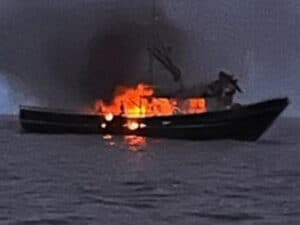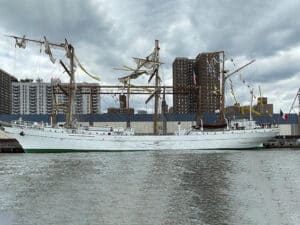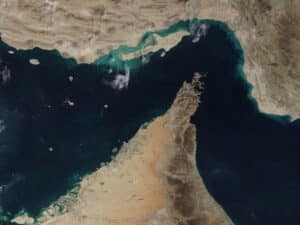
CRS report takes a hard look at challenges facing USCG
Written by Nick Blenkey
AUGUST 1, 2017 — Ever increasing safety and environmental regulatory demands put pressures not only on vessel owners and operators, but also on enforcement agencies — including the U.S. Coast Guard.
This is underscored in a report just published by the Congressional Research Service, which notes that “the fleet of vessels the Coast Guard inspects for safety reasons recently doubled because the agency is now responsible for inspecting tugs and towboats that push or pull barges (towing vessels), in addition to ships.”
The report, entitled “The Coast Guard’s Role in Safeguarding Maritime Transportation: Selected Issues,” says that the Coast Guard is now considering an hours-of-service limit for crews working on towing vessels in an effort to reduce accidents caused by fatigue and is reevaluating the crewing requirements for certain seagoing barges. These potential changes are controversial and could raise the cost of transporting petroleum and chemical products by barge.
Other current controversies related to the Coast Guard’s vessel safety responsibilities, says the CRS report, include the following:
Whether the agency should place greater reliance on nonprofit vessel classification societies to perform vessel inspections in place of Coast Guard personnel, as recommended by an independent review panel requested by Congress.
The effectiveness of Coast Guard vessel traffic service centers in preventing harbor accidents, which is questionable due to insufficient staff experience and expertise.
The Coast Guard’s ability to operate in the Arctic, where a decline in sea ice during the late summer has led to increased maritime activity.
The potential for replacing physical aids to navigation, such as channel marking buoys and beacons, with virtual aids utilizing GPS and electronic charts, at significant cost saving.
The potential use of unmanned aerial vehicles (drones) to increase the efficiency and reduce the cost of Coast Guard sea patrols.
Guidelines for the safe refueling of ships using liquefied natural gas (LNG).
Enforcement of cleaner fuels for ships; cleaner fuels are reportedly causing some ships to have engine problems and are believed by some to be part of the reason for a ship collision in Houston in March 2015.
Coast Guard guidelines for establishing buffer zones between offshore wind farms and shipping corridors.
Download the report HERE





Leave a Reply
You must be logged in to post a comment.